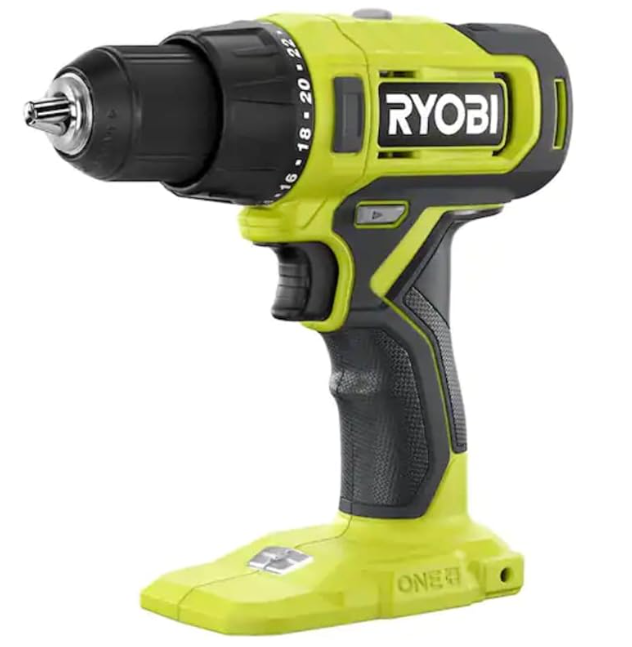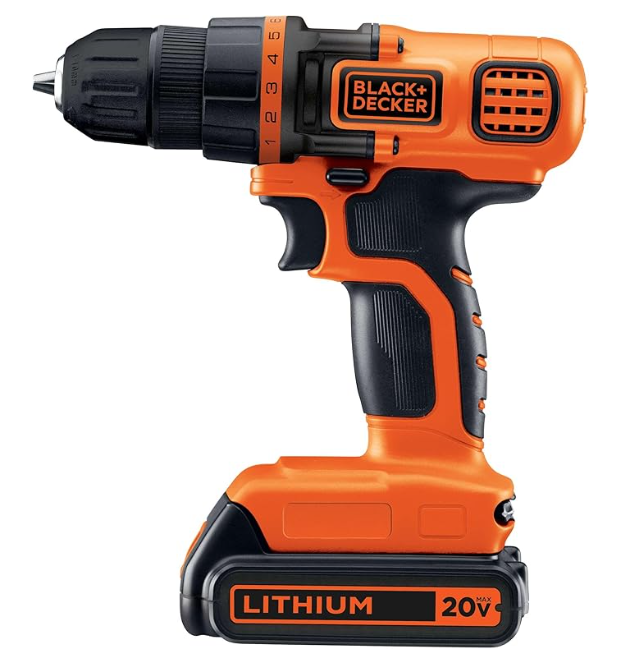Ryobi Drill vs Black+Decker Drill: Which Budget Brand Wins?
RYOBI GENERALBLACK+DECKER GENERAL
11/2/20255 min read


Click 'Shop Now!' to find on Amazon now!...
VS


Click 'Shop Now!' to find on Amazon now!...
Introduction to Budget Drill Brands
In the realm of power tools, budget-friendly options have become increasingly popular among a diverse range of users, from dedicated DIY enthusiasts to casual homeowners seeking reliability for household tasks. Two of the most renowned brands in this segment are Ryobi and Black+Decker, both of which have carved out significant niches within the tool industry. These brands focus predominantly on providing accessible, affordable drills that do not compromise on quality, appealing to a broad audience.
Ryobi, part of the Techtronic Industries family, is particularly known for its extensive line of cordless tools that emphasize versatility and innovation. Their products often cater to users who are engaged in weekend projects or renovations, as well as professionals who need dependable tools for light to medium-duty tasks. Ryobi's marketing strategy leans heavily into the DIY market, offering a range of power tools that encourage creativity and home improvement.
On the other hand, Black+Decker, a pioneer in the power tool industry, has a long history of delivering user-friendly products. This brand appeals to a wide spectrum of consumers, from novice DIYers to seasoned professionals. Black+Decker drills are particularly favored for their ergonomic designs and ease of use, making them suitable for individuals who are new to home improvement projects. The company also emphasizes the practicality of its tools, ensuring that they remain reliable options for various household tasks.
The attractiveness of opting for budget drills lies in their affordability without sacrificing essential features. For many consumers, the prospect of investing in reliable, efficient tools at a lower price point creates a practical solution for everyday home projects. As these two brands continue to compete in this segment, understanding their distinctions and strengths is crucial for potential buyers aiming to make informed decisions.
Feature Comparison: Ryobi vs. Black+Decker
When evaluating budget-friendly drills, both Ryobi and Black+Decker offer a variety of models with distinct features tailored for a range of users, from casual DIY enthusiasts to more serious hobbyists. In terms of power, Ryobi drills typically boast higher voltage options, commonly ranging from 18V to 40V. This can translate into superior performance in tougher materials, making them a popular choice for projects requiring robust drilling capabilities. In contrast, Black+Decker drills frequently offer slightly lower voltage models, which may suffice for light to moderate tasks but could struggle with more demanding applications.
Battery life is another critical aspect. Ryobi utilizes its One+ battery platform, which supports multiple tools, and is renowned for its longevity. Users can expect a decent run time on a single charge, making it efficient for extended projects. Black+Decker's lineup also showcases decent battery performance, but some users report that their batteries may drain more quickly than those of Ryobi, particularly under heavier loads.
Torque capability also plays a significant role in the drilling experience. Ryobi drills generally provide variable torque settings that allow users to adjust the power based on the material being drilled. This enables greater precision and control. On the other hand, Black+Decker offers a range of torque options as well, but they may lack the same level of finesse, potentially resulting in less optimal results on tougher surfaces.
When it comes to versatility, Ryobi drills often include multiple modes, such as drilling, hammer drilling, and driving, along with integrated LED lights for better visibility. Black+Decker models frequently possess similar features, though they may fall short in the variety of modes offered. Weight and design can also differ, with Ryobi generally providing a slightly bulkier build that may not appeal to all users, while Black+Decker tends to offer a more lightweight design, enhancing portability.
Each brand has its strengths and weaknesses, with unique additional features that cater to different user preferences. Understanding these distinctions will aid consumers in making an informed decision based on their individual needs and project requirements.
Customer Reviews and Ratings
When considering the Ryobi and Black+Decker drills, customer feedback is instrumental in understanding real-world performance, durability, and overall satisfaction. Numerous reviews from online retailers and tool review websites indicate that both brands serve as credible options for budget-conscious consumers. However, they cater to slightly different preferences and circumstances that impact user experiences.
For Ryobi drills, users frequently commend their robust performance and versatility. Many reviewers note the impressive battery life associated with their cordless options, allowing for extended use without frequent recharges. Additionally, there is a common appreciation for the ergonomic design, which enhances user comfort during extended tasks. Customers often highlight the extensive range of accessories available, making Ryobi a preferred choice for those seeking adaptability in their drilling tasks. However, some users have reported concerns regarding long-term durability, particularly for certain models that may show wear over time under rigorous conditions.
On the other hand, Black+Decker drills have garnered a reputation for reliability and ease of use. Customers appreciate their lightweight design, which contributes to maneuverability, particularly in tight spaces. The affordability of Black+Decker models also stands out, with many users praising the value for money. However, some reviews mention that while they are suitable for light to medium tasks, they may not perform as efficiently as Ryobi drills under heavy-duty conditions. Additionally, users commonly observe that Black+Decker products may come with less power capacity compared to their Ryobi counterparts, which could be a consideration for those who regularly undertake intensive projects.
In summary, both Ryobi and Black+Decker have their respective strengths and weaknesses, and potential buyers should weigh these against their own requirements and preferences to make a well-informed decision.
Conclusion: Which Brand Holds the Edge?
When comparing Ryobi and Black+Decker drills, the decision ultimately hinges on the specific needs and preferences of the user. Both brands have solidified their positions in the budget drill market, offering a range of products that cater to various DIY enthusiasts and professionals alike. Ryobi emerges as a strong contender thanks to its innovative features, wide variety of models, and the robust ONE+ system that allows for battery compatibility across multiple tools. Users who value versatility and extensive product ranges may find Ryobi drills better suited to their needs.
Conversely, Black+Decker stands out with its focus on user-friendliness and reliability. Many customers have praised the brand for its straightforward designs and ease of use. The drills tend to be lightweight and ergonomically designed, which is particularly appealing to those who may be new to DIY projects or require a tool for lighter tasks around the home. Black+Decker also benefits from a long-standing reputation for quality, often translating to higher trust among consumers.
In analyzing customer feedback, both brands have their loyal following, though Ryobi users tend to appreciate the advanced features and performance for more intensive projects. Black+Decker, on the other hand, garners loyalty for its dependable functionality in everyday tasks. Therefore, potential buyers are encouraged to assess their project frequency, types of tasks, and comfort with technology when choosing between these two well-regarded brands.
Ultimately, whether Ryobi or Black+Decker holds the edge will depend on the individual's requirements. Individuals should consider their specific tasks and preferences to determine which budget drill aligns with their needs, ensuring a satisfactory purchase that serves them well in their projects.
